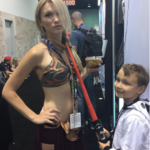"Wow, the men here are so attentive to their babies…"
This is what a brand-new staff member working for a large aid organization said to me as I arrived on Lesvos island in Greece, where I went in November to help out in the Syrian refugee crisis. The aid worker was referring to the refugee fathers and their dedication to their children.
When she said it, I looked around to make sure I understood what she was talking about. Indeed the fathers and mothers of these children were showing incredible patience and compassion to their children even in the most frustrating circumstances. I know from my own experience that when I am scared for myself or my family, especially their safety, I'm so quick to snap at them. It's normal to be less patient when you're scared.
RELATED: Jamie Grumet's Story of Syrian Refugees Will Change the Way You Think About the Crisis
However, this was just not the case for the majority of the refugee families.
Over the next four months, for work on the Nurture Tomorrow project, I traveled to refugee camps that appeared in several different countries. Again, I heard the same surprised comments about the fathers in each camp. One person even questioned why the men were caring for the children even more so than the women in some camps.
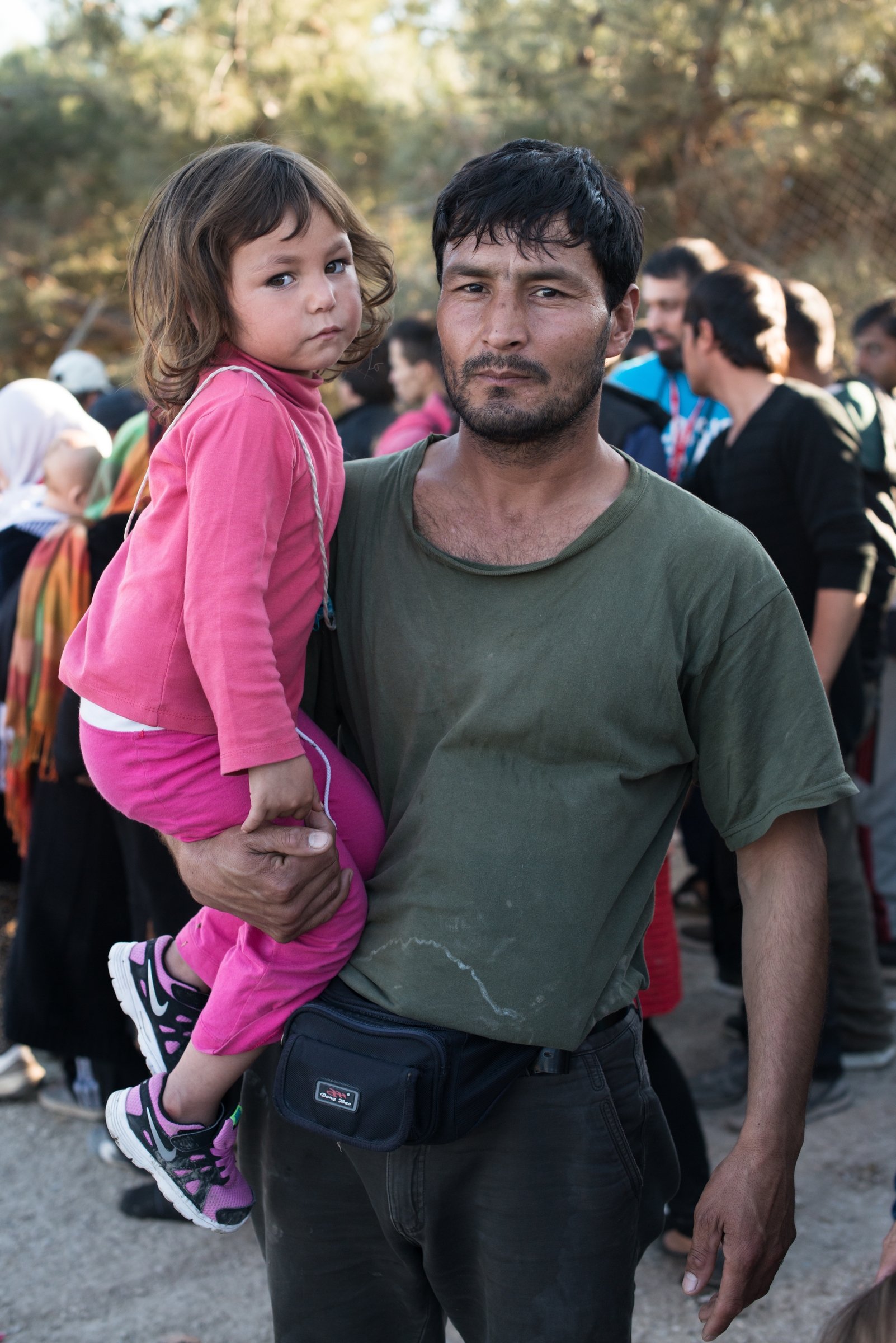
It wasn't until the second or third "good father" comment that I started focusing in on the details of the comments. They weren't actually trying to expressing anything about parenting. What they were observing was the contrast between what these Western aid workers expected of the men—Syrian men, Muslim men—caught in the crisis compared to the reality of what they witnessed.
I finally decided to ask my friend Fizz about how shocked people were at how hands-on these fathers were. I wanted to know if he had any insight.
Fizz sighed. "Oh yes, this is just another part of Islamaphobia that is subtly infused into Western culture through the media. This isn't about fathers or patriarchy, which is seen in Western cultures as well," he said. "This is about Arab men and the lies about them being fed to everyone in the West."
Diaz blames the media for creating an aggressive misogynistic Arab male archetype that does not reflect the majority of the Arab male population.
Apparently this is a common misconception among Westerners regarding Arab men. Patriarchy definitely plays a large role in this preconceived idea about how men will treat women and children. But this is a bit hypocritical as Judeo/Christian values applied historically in the West also have clear patriarchal biases.
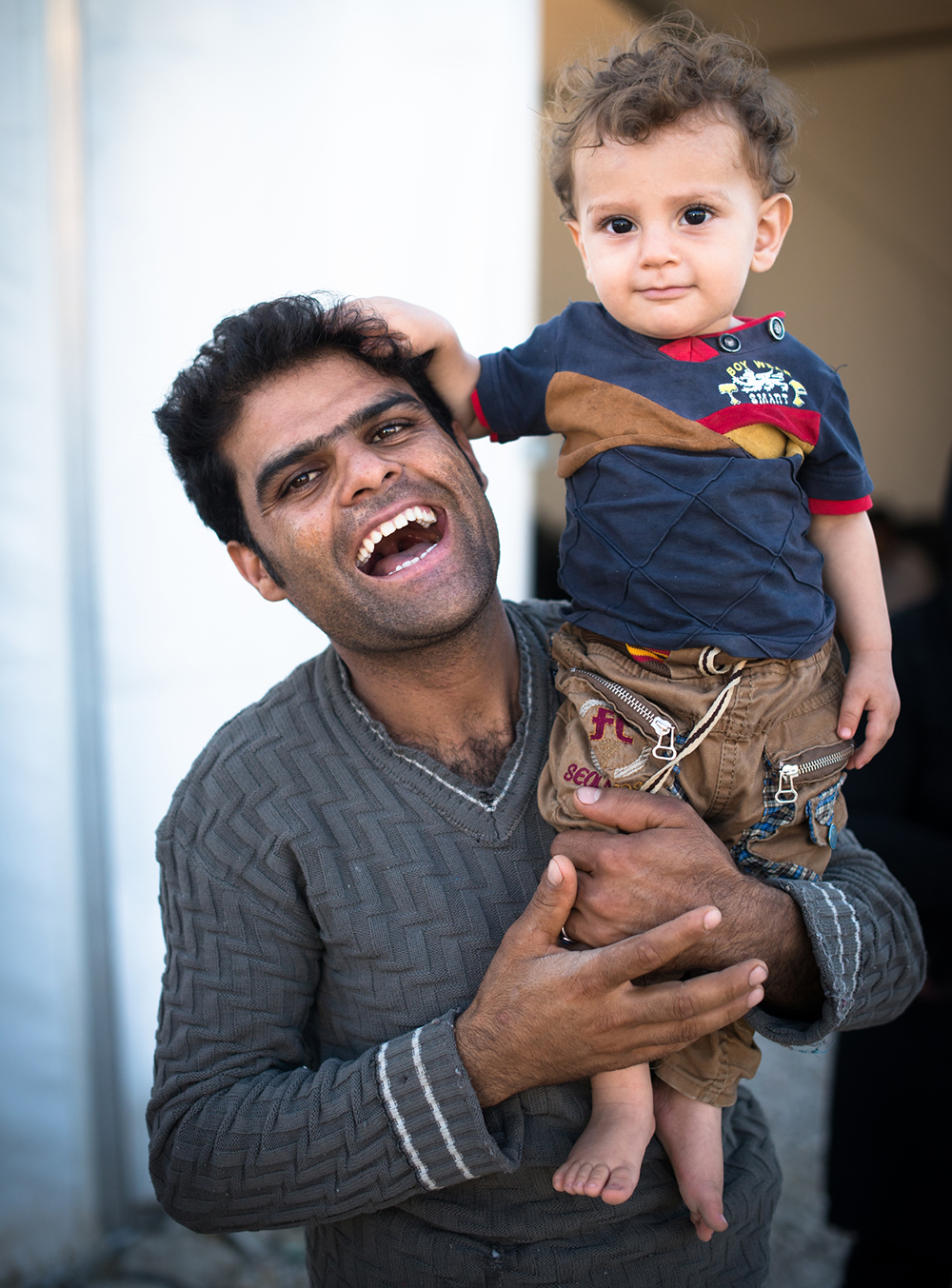
However, Westerners seem to focus specifically on Arab men mistreating women due to their culture and faith, and the logic that follows is if this group of men do not respect women, they will not respect traditional roles of women, i.e. mothering/parenting.
Khaled Diab wrote about the western myth of Arab men and how it applies to fatherhood. In a recent interaction with a Ukranian woman, "N", he highlighted this common misconception:
"N entertains some stereotypical views of Arabs that come straight out of Hollywood central casting. Thus, she has expressed her surprise—and approval—that I can actually take care of a baby and do household chores."
Diaz blames the media for creating an aggressive misogynistic Arab male archetype that does not reflect the majority of the Arab male population.
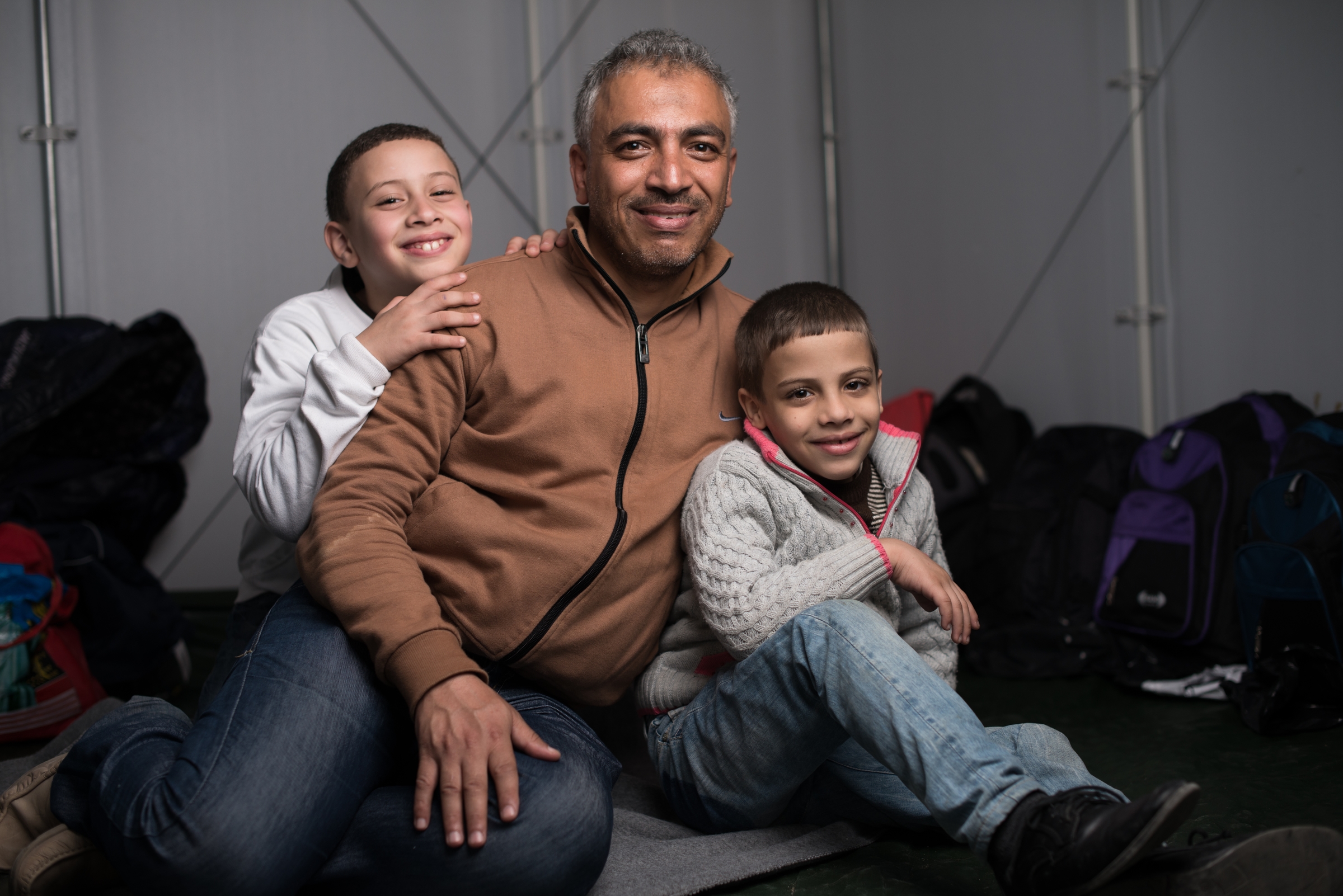
"Sure, there are 'bad' people everywhere." Fizz told me. "But to use the few examples of cruel men who happen to be Arab, because it fits with the media's explanation of an Arab or Muslim man, is wrong … it may be easier and more comfortable for you to believe this is true, but it's wrong to do so."
He added that it would be like me saying all white American men are pedophiles because I've seen Jared from Subway and a few others like him on the news.
Even my own bias, which I was seemingly unaware of, had shifted after this conversation with Fizz. It was a few days later that his words had even more meaning when I visited "Kitchen in Calais" at the refugee camp in Calais, France. I was invited inside the kitchen by the couple who started it.
The hate and fear we as a culture are spreading is isolating us from so many people like Ahmad and the loving fathers we met in camps all over Europe and Asia.
That's where I met Ahmad, a 25-year-old Iraqi refugee who worked in the kitchen.
The atmosphere inside "Kitchen in Calais" is extremely relaxed. Ahmad was assisting in the preparation of dinner for 1,000 people, when two little girls ran in. Someone informed me that the two girls were sisters from Syria, and their father had recently been killed. The two ran in with smiles on their faces and asked Ahmad, who they clearly were comfortable with, for some snacks. He smiled at them and packed a huge bag of snacks, handed it to them and kissed them on the tops of their heads before sending them on their way.
This was a quiet moment that was so normal for those in the kitchen that no one even noticed. But for me, when I watched this childless, young Iraqi man—whom American media has told us is a threat to our nation—and saw how compassionate and attentive he was to two little girls who weren't from his home country, it made me feel both comforted and sad. The hate and fear we as a culture are spreading is isolating us from so many people like Ahmad and the loving fathers we met in camps all over Europe and Asia.
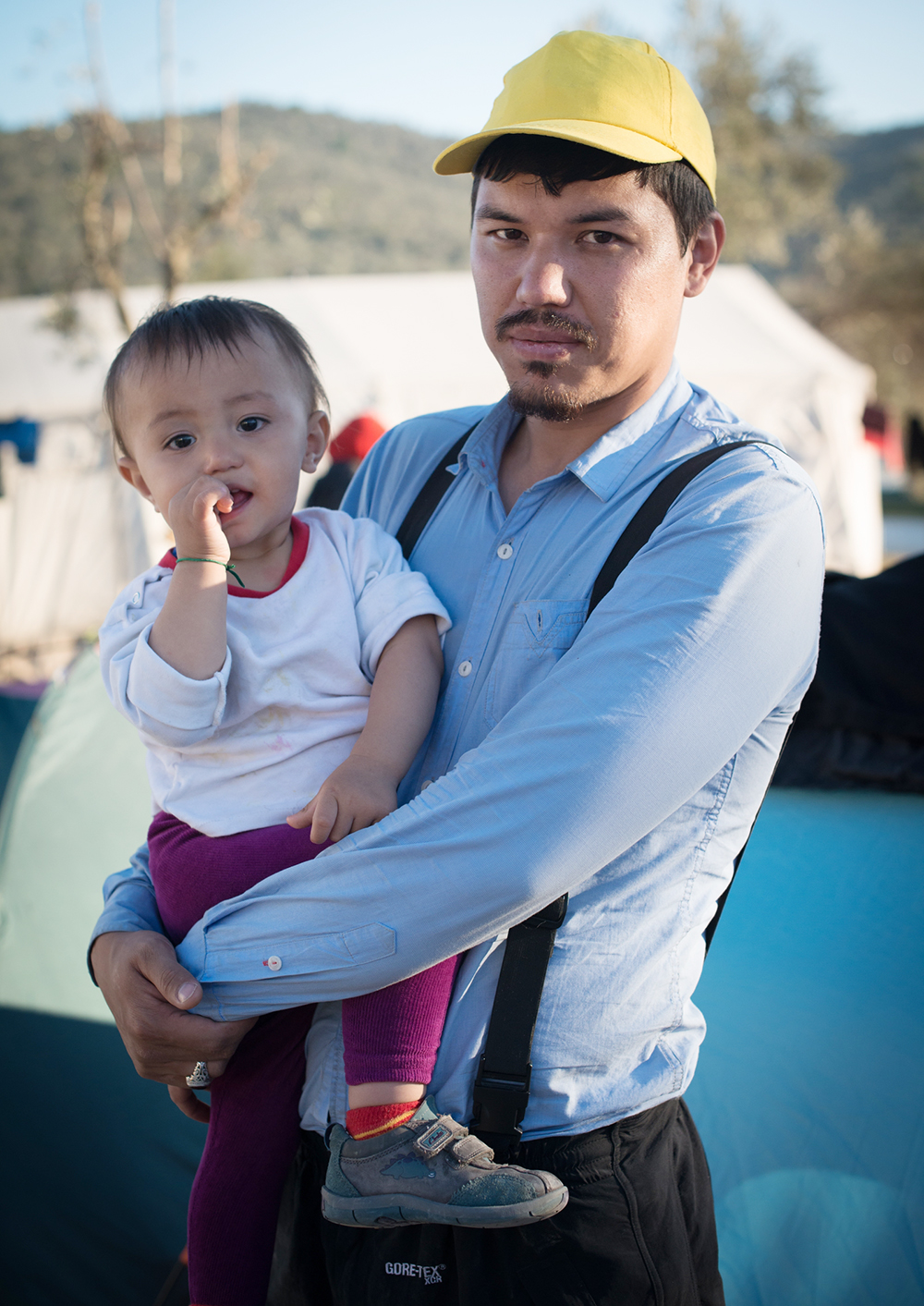
RELATED: That Time I Breastfed My Son On the Cover of Time
If you want to know how to make a dramatic impact on the refugee crisis without spending a penny, then help humanize the men in this crisis. The media, especially the entertainment industry, has done a great job vilifying Arab men (and pretty much all non-white men for that matter).
Men specifically matter in this crisis, because so many are fleeing. They are at the greatest risk for being killed in their countries, and recruited by the Islamic State and the Syrian Regime. Those men who can leave for Europe first do so, in order to make sure they don't unnecessarily endanger their families.
Through absence, they're caring for their families. Wherever they are, they're caring for others, including children. Which shouldn't surprise any of us.
Photographs by: Jade Beall and Lori Dorman
